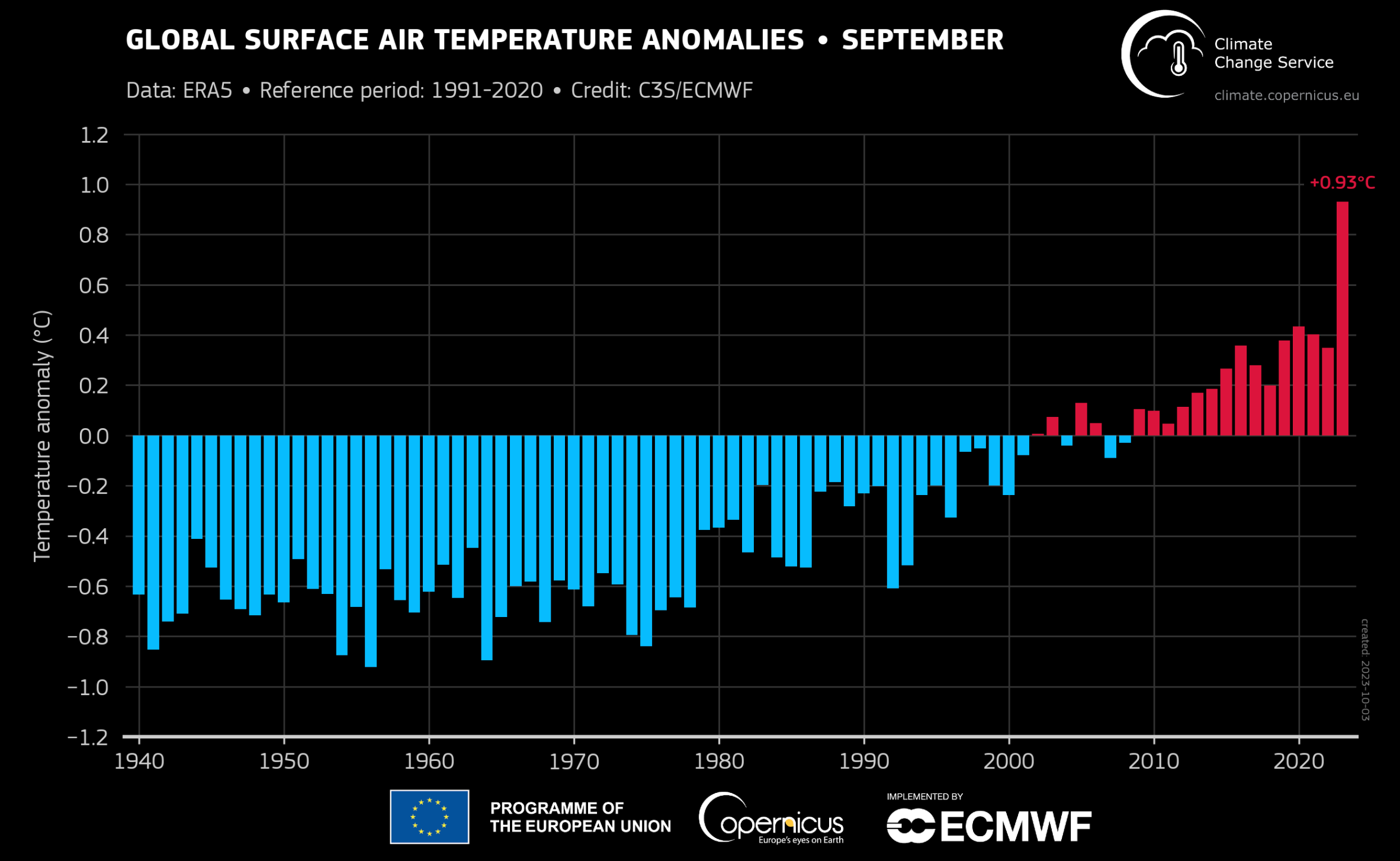2023 is on track to be the hottest year ever recorded
The human-caused climate crisis continues to be driven to new extremes by the continued burning of fossil fuels
Your support helps us to tell the story
From reproductive rights to climate change to Big Tech, The Independent is on the ground when the story is developing. Whether it's investigating the financials of Elon Musk's pro-Trump PAC or producing our latest documentary, 'The A Word', which shines a light on the American women fighting for reproductive rights, we know how important it is to parse out the facts from the messaging.
At such a critical moment in US history, we need reporters on the ground. Your donation allows us to keep sending journalists to speak to both sides of the story.
The Independent is trusted by Americans across the entire political spectrum. And unlike many other quality news outlets, we choose not to lock Americans out of our reporting and analysis with paywalls. We believe quality journalism should be available to everyone, paid for by those who can afford it.
Your support makes all the difference.2023 is on track to be the hottest year in human history.
The announcement, from European scientists on Thursday, was hardly suprising after record-breaking heat this summer in the northern hemisphere, and an off-the-charts September.
“This extreme month has pushed 2023 into the dubious honour of first place - on track to be the warmest year and around 1.4 [degrees Celsius] above preindustrial average temperatures,” Samantha Burgess, deputy director of the EU’s Copernicus Climate Change Service (C3S) said in a statement.
“Two months out from Cop28 – the sense of urgency for ambitious climate action has never been more critical.”
C3S reached the conclusion based on computer-generated analyses using billions of measurements from satellites, ships, aircraft and weather stations around the world.
Among the key findings:
- September 2023 was the warmest September on record globally with an average air temperature of 16.38C - nearly 1C hotter than the average between 1991 and 2020. Last month was also half a degree hotter than the temperature of the previous hottest September in 2020.
- From January to September 2023, the average global temperature was 1.4C higher than in 1850-1900, when some countries began to ramp up the burning of oil, gas and coal.
- Ocean temperatures hit 20.92C in September, the highest on record for that month, and the second highest ever after August 2023.
- Antarctic sea ice remained at a record low level for the time of year.

Behind the record heat is the human-caused climate crisis which continues to be driven to new extremes by the continued burning of fossil fuels.
Temperatures are also being amplified this year by the emergence of a natural climatic pattern, El Nino.
The record-breaking September temperature comes after the hottest August and hottest July, with the latter being the hottest month ever recorded.
“September was, in my professional opinion as a climate scientist, absolutely gobsmackingly bananas,” said Zeke Hausfather, at the Berkeley Earth climate data project.
The first global temperature data is in for the full month of September. This month was, in my professional opinion as a climate scientist – absolutely gobsmackingly bananas. JRA-55 beat the prior monthly record by over 0.5C, and was around 1.8C warmer than preindutrial levels. pic.twitter.com/mgg3rcR2xZ
— Zeke Hausfather (@hausfath) October 3, 2023
The increase in global heat is manifesting in extreme weather events worldwide. Southern Europe, North Africa, North America and Asia have faced relentless heatwaves since late spring.
More heat supercharges storms and has led to powerful hurricanes and deadly rains across the world. In Derna, Libya, thousands of people were killed after rainfall and flooding triggered the collapse of two crumbling dams and washed a third of the city into the sea in September. Intense, erratic rainfall has also led to deadly flash flooding in India, China, South Korea, Brazil, Chile and US Northeast.
Wildfires have exploded across Greece, Italy, Croatia and Algeria. In Canada, there has been 6,500 wildfires this year so far, destroying more than 71,000 square miles - an area twice the size of Portugal.
Australia experienced its driest September on record adding to a growing list of places battling drought.
In the Horn of Africa and South America, these conditions are pushing tens of millions more people into extreme hunger.
A disaster has been declared in southern Louisiana, around the city of New Orleans, after threats to the drinking water supply due to a massive intrusion of salt water into the dwindling Mississippi River.




Join our commenting forum
Join thought-provoking conversations, follow other Independent readers and see their replies
Comments